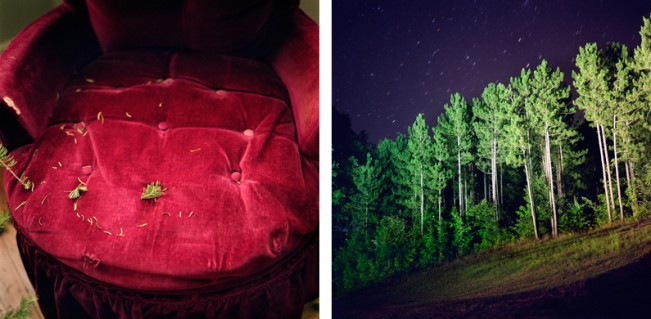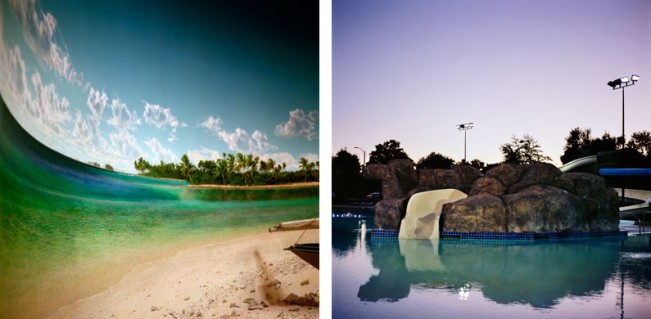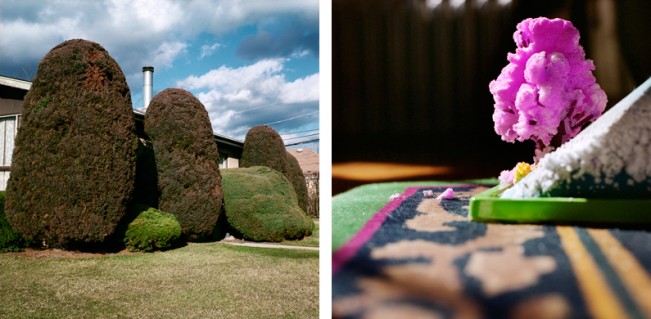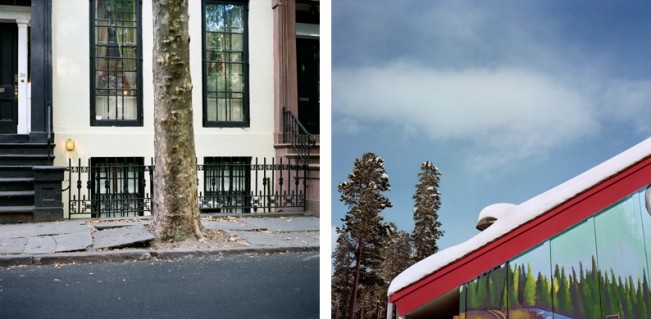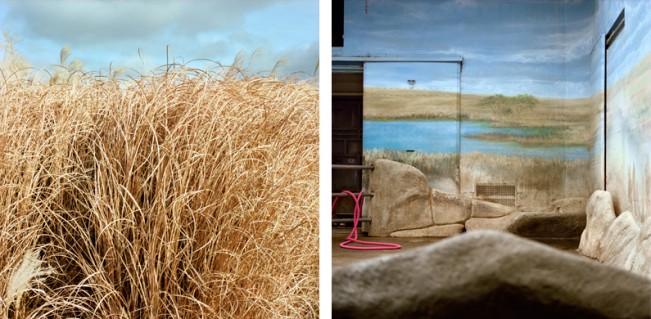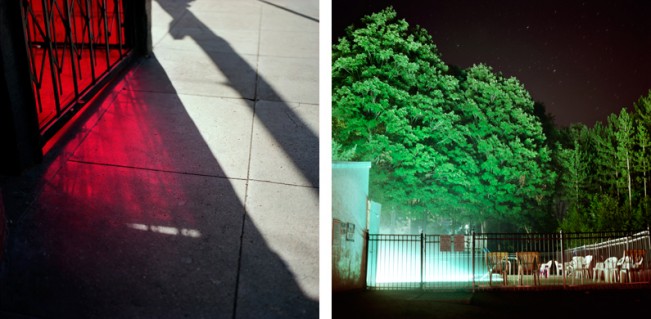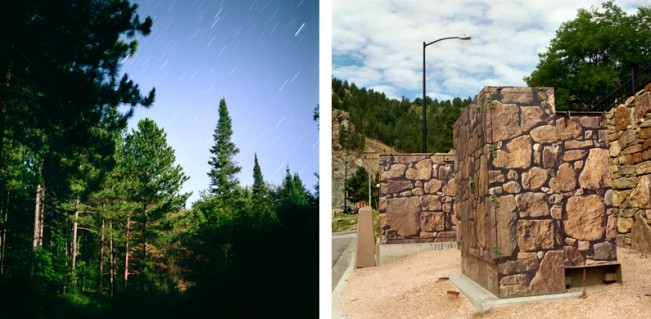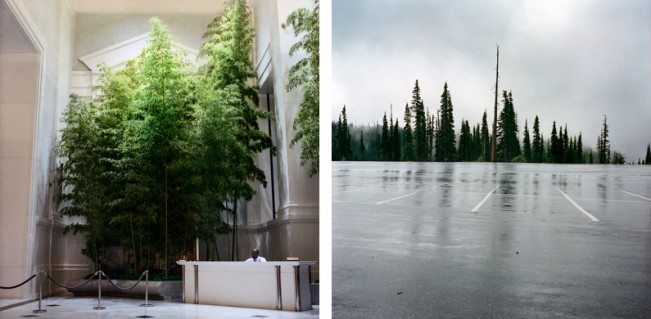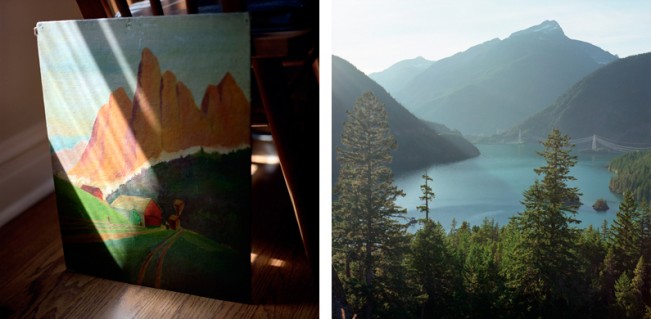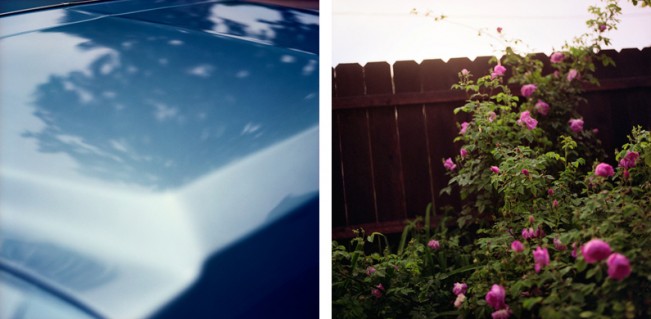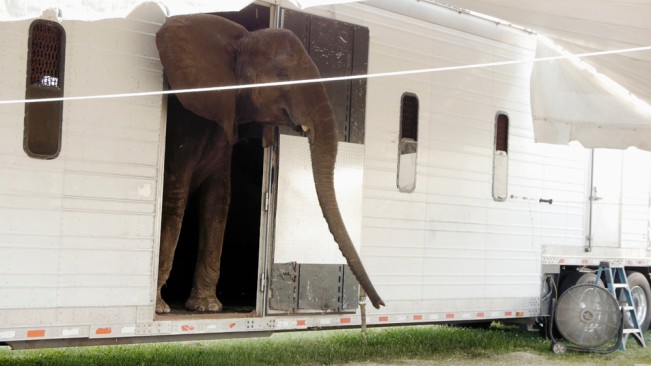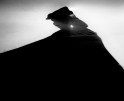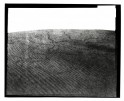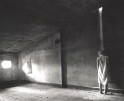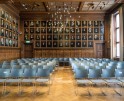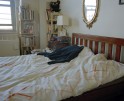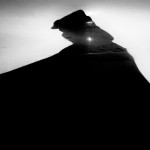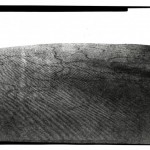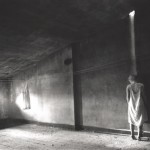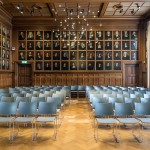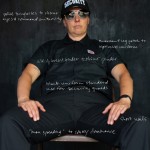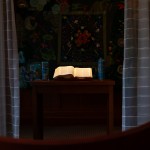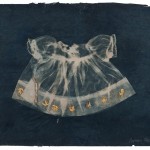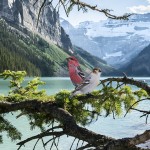Colleen Plumb: Towards the Sky Again
Towards The Sky Again
From what (or where) do we draw strength and sustenance? Do artificial/mediated forms of nature offer a satisfying substitute for the actual? Where does wilderness begin and end? Towards The Sky Again looks at the ways humans engage with and make connections to the natural world. The images, made over a fourteen-year period (1997-2011), show oddities, interventions in the landscape, and fabricated realities. The photographs are in diptychs, offering multi-layered visual and contextual readings.The built environment is full of cultivated natural forms, and the landscape around us has layer upon countless layer of human intervention. I am interested in these contradictions—the push-and-pull between interior and exterior worlds. The series looks to the elemental—terra (earth), aqua (water), aer (air), ignis (fire)—as reference, as a lead to something beyond the material, beyond human power.
Thirty Times A Minute, 2009-2014
single-channel color video, sound; 6:50 min.
I wonder if the act of looking at animals is part of a larger search for connection with something beyond ourselves, beyond our humanness—an attempt to connect with the mystery that nature inspires, even if this experience must be heavily mediated. Why do so many people want to look at animals? Why do we defend or implicitly support the practice of looking? What does it mean to participate as a spectator of animals?
Thirty Times A Minute explores elephants in captivity. I have traveled to more than half of the seventy-five zoos in the US that keep elephants, making video of elephants exhibiting what biologists refer to as “stereotypic” behavior, (also called “weaving”). Only captive elephants exhibit weaving, which includes rhythmic rocking, swaying, swinging the trunk, head bobbing, stepping back and forth, or pacing. These compulsive, repetitive movements cause debilitating, life-threatening damage to the animals’ feet and joints. I have also begun to document circuses and fairs where elephants perform. The title references the heart rate of an elephant: circus owners have been known to tell visitors that elephants must sway as they doze while standing, keeping with their heartbeat.
The durational video of these repetitive movements within environments that nearly replicate one another, are made from stationary viewpoints, and when viewed en masse, become a larger study into unified, rhythmic movement. I am interested in the notion of collection as obsession, and ways that the project’s multiplicity, in form and content can mirror the endless and obsessive state of the animals’ behavior. Elephants communicate through infrasonic sound (sounds too low for humans to hear). The audio references these hidden vocalizations.
Through the observation of stereotypic behaviors in elephants, I am impelled to ask: in what ways do humans, along with all living beings, seek soothing and connectivity? Can ritualistic behaviors be viewed as a means of escape from present reality, and do forms of escape potentially—or inevitably—become debilitating distortions?
___
All Movement is Bound to be Towards a Perfect State, 2014
single-channel color video, sound; 7:30 min.
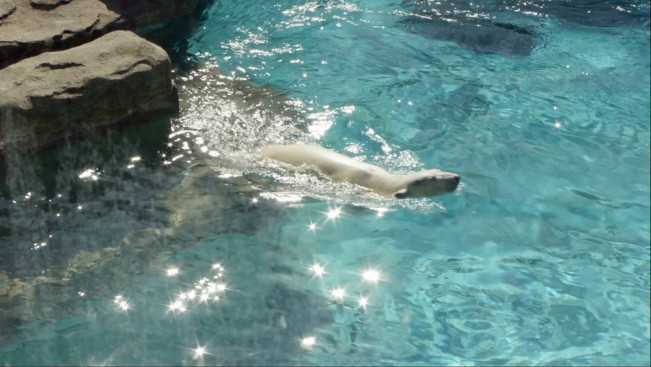
still: All Movement is Bound to be Towards a Perfect State, 2014
single-channel color video, sound; 7:30 min.
In the world of spirit there is no retrogression. The world of mortality is a world of contradictions, of opposites; motion being compulsory everything must either go forward or retreat. In the realm of spirit there is no retreat possible, all movement is bound to be towards a perfect state.
-Abdu’l-Bahá, Paris, 1911
We observe, possess, consume and strive to connect with nature in so many ways, sometimes in absurd or brutal ways. In the largest sense, striving for some sort of connection, in spite of the often bumbled methods, still propels us in a forward motion. Movement forward—the simple act of seeking—has significance. Circles, a spiritual symbol of perfection, are used throughout the video to reference the message in the above quote.
These sequences of moving images—evidence of our consumption of nature—when added up together ask:
What are our pastimes? How do we enrich our lives? Where do we spend our money? And especially: What do we do to not feel alone?
Posts on Lenscratch may not be reproduced without the permission of the Lenscratch staff and the photographer.
Recommended
-
Jonathan Silbert: InsightsFebruary 19th, 2026
-
Olga Fried: Intangible EncountersFebruary 18th, 2026
-
Anne McDonald: Self-PortraitsFebruary 17th, 2026
-
Review Santa Fe: Leslee Broersma: Tracing AcademiaFebruary 11th, 2026
-
Review Santa Fe: Ilana Grollman: Just Know That I Love YouFebruary 10th, 2026

